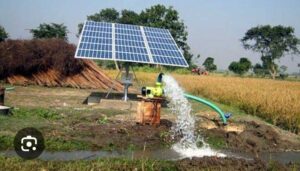


,,,,,,Women in Agriculture Cooperative Federation Limited solicits for government support.
By Dada Ahmed in Lokoja
The World Bank, in collaboration in collaboration with CESEL( Irri-Go) plan to establish solar energy irrigation facilities for Women in Agriculture Cooperative Federation limited.

Dr.Esther Audu
The project, which will be launched, soon,is aimed at transforming agricultural practices and boosting food production.
Dr.Esther Audu, the National President of Women in Agriculture Cooperative Federation limited, disclosed this in an interview with The Reporters in Lokoja on Monday.
She further revealed that plans are on the way to launch the project in Lokoja,the state capital with a subsequent rollout across all 21 local government areas of the state.
Dr.Audu added that the initiative would engage 10,000 farmers with a focus on empowering women farmers that make up 70% of the participants. Men and youth interested in farming, she said, would be included in the remaining 30%.
She emphasized that Kogi State is ideal for the project, inview of its vast arable land and strategic location near the River Niger, which offers a strong foundation for the success of solar-powered irrigation systems.
The national president,however, noted that her NGO faces a challenge in securing adequate counterpart funding required for the project to take off.
Dr. Audu explained that while the World Bank is ready to support, the financial resources needed to fulfill the counterpart funding,such commitment is currently beyond the NGO’s capacity to access the facilities.
The national president,who said that the NGO has begun discussions with key government officials, on the issue,appealed to the Governor of the state,Alhaji Ahmed Usman Ododo to lend his support to the project.
She stressed for the state government assistance in the area of subsidizing the counterpart funding needed by NGO in ensuring the timely realization of the project she described as transformative agricultural initiative.
According to her,the project promises significant benefits for Kogi State, including enhanced dry-season farming, increased food production, job creation, and reduced unemployment, especially for women and youth.
Dr. Audu also urged the state government to bolster security measures, ensuring a safe environment for farmers participating in the initiative.
She added that with the Kogi State government’s support, the project could mark a new era of sustainable agriculture, economic growth, and food security for the state.
Agriculture experts describe solar irrigation as a method of using solar energy to power irrigation pumps and other systems to help farmers grow crops.
It is cost-effective and environmentally friendly way to increase crop yields and reduce the need for fossil fuels, they explain.
Other advantages of solar energy irrigation facilities include; cost savings, water conservation, increased crop yields, year round crop growth, reduced drudgery and diversified livelihood options, according to Google.

